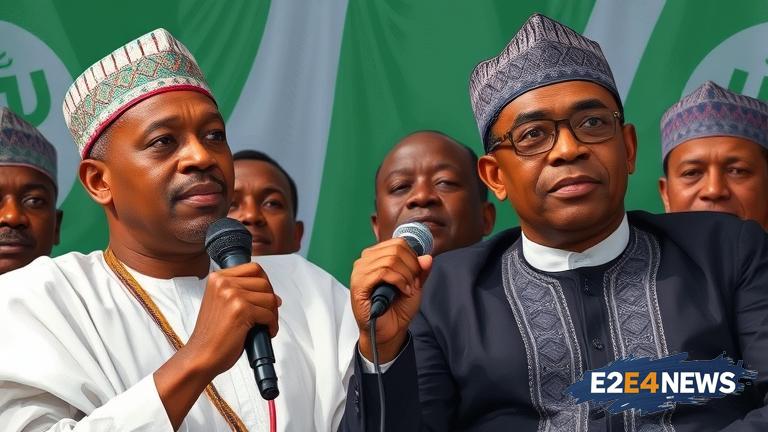The Peoples Democratic Party (PDP) has taken a drastic decision to shut out northern aspirants from its 2027 presidential ticket, a move that has generated intense controversy and debate. This decision has been met with criticism from various stakeholders, including northern leaders and politicians who feel that the party is being unfair and biased. The PDP has argued that its decision is based on the need to rotate the presidency to the southern region, citing the principle of zoning and the need to promote national unity and balance. However, northern leaders have countered that the party’s decision is a clear breach of the zoning arrangement and an attempt to marginalize the north. The controversy has sparked a heated debate, with some arguing that the PDP’s decision is a ploy to gain political advantage in the south, while others see it as a genuine attempt to promote national unity. The party’s national chairman has defended the decision, stating that it is in the best interest of the party and the country. However, the decision has been rejected by some northern governors and politicians who have threatened to take drastic measures if the party does not reverse its decision. The controversy has also sparked a wider debate about the role of zoning in Nigerian politics and the need for a more inclusive and equitable system. Some have argued that zoning has become a tool for political manipulation and that it is time for Nigeria to move beyond such arrangements. Others have countered that zoning is necessary to promote national unity and balance, and that it is a key factor in ensuring that all regions have a fair chance to produce the president. The PDP’s decision has also been criticized by some civil society groups who have argued that it is a clear breach of the party’s constitution and the principles of democracy. The controversy has sparked a national debate, with many calling for a review of the party’s decision and a more inclusive approach to politics. The PDP has been accused of being insensitive to the feelings and aspirations of northern Nigerians, and of prioritizing political expediency over national unity. The party’s decision has also been seen as a setback for the country’s democratic progress, and a clear indication that the party is not committed to the principles of fairness and justice. Despite the controversy, the PDP has maintained that its decision is final and that it will not be swayed by criticism or pressure from any quarter. The party has also argued that its decision is in line with the principles of democracy and the rule of law, and that it is a necessary step to promote national unity and balance. However, the controversy is far from over, and it remains to be seen how the party’s decision will play out in the coming months. The PDP’s decision has also sparked a wider debate about the future of Nigerian politics and the need for a more inclusive and equitable system. Some have argued that the party’s decision is a clear indication that the country needs a new political order, one that is more inclusive and equitable. Others have countered that the party’s decision is a necessary step to promote national unity and balance, and that it is a key factor in ensuring that all regions have a fair chance to produce the president. The controversy has also sparked a national debate about the role of politics in promoting national unity and balance, and the need for a more inclusive and equitable system. The PDP’s decision has been criticized by many, including northern leaders and politicians who feel that the party is being unfair and biased. However, the party has maintained that its decision is final and that it will not be swayed by criticism or pressure from any quarter.
